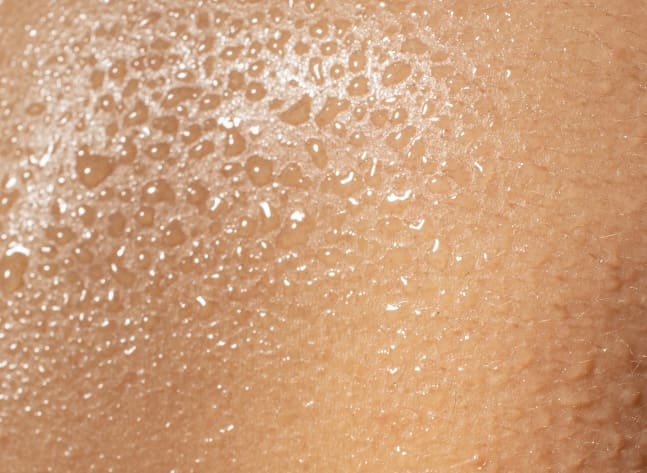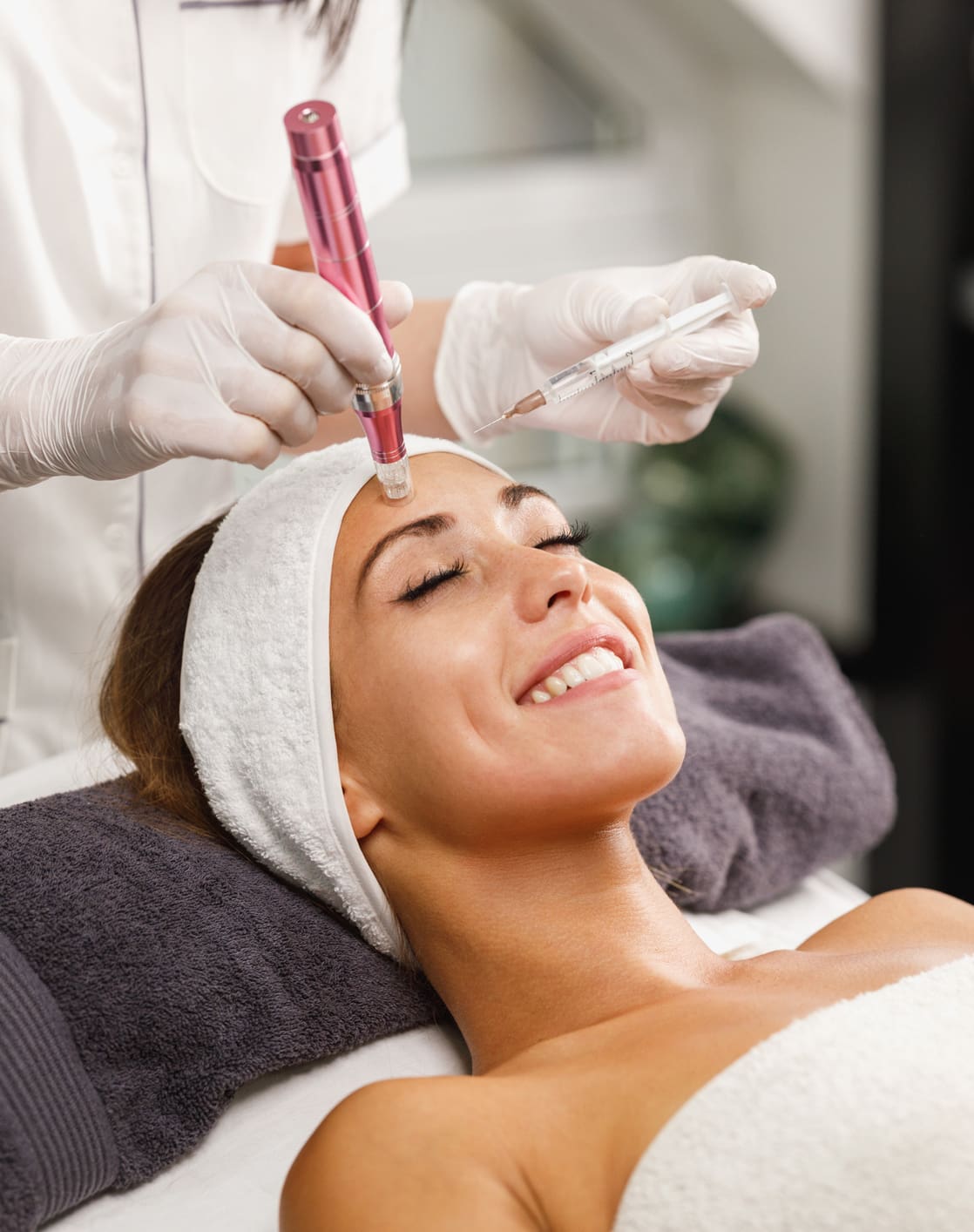Acne in the Greater Phoenix Area
Surprise, Buckeye & Scottsdale
Medical dermatology is an essential branch of healthcare focusing on diagnosing and treating a wide range of skin conditions. At Arizona Skin, we pride ourselves on offering comprehensive medical dermatology services to patients throughout the Greater Phoenix area, including Surprise, Scottsdale, and Buckeye. Our experienced dermatologists are equipped to address various skin issues and complex skin diseases including acne. We understand the importance of healthy skin and are committed to providing personalized care to ensure the best possible outcomes for our patients.

What is Acne?
Acne is a common skin condition that impacts millions of people of all ages every year. While many cases are considered mild and can be controlled with a consistent, at-home cleansing routine, severe cases usually require professional treatment. Acne encompasses a blend of whiteheads, blackheads, pimples, and small red bumps. This skin condition is caused by bacteria, clogged pores, and dead skin cells. It most often presents in teenagers but can also affect adults well into their 40s.
Acne most frequently shows up on the face, neck, chest, and back. To regain a healthier, luminous appearance, Arizona Skin offers numerous treatment options, which range from personalized at-home cleansing methods to prescription drugs and therapeutic laser treatments. If you live in the Greater Phoenix area, give our office a call today.
Causes of Acne

Excess Oil Production
The sebaceous (oil) glands in the skin can produce excess oil (sebum). This oil can clog hair follicles, leading to the formation of pimples and other acne lesions.
Clogged Hair Follicles
When dead skin cells shed but don’t slough off properly, they can mix with sebum and form blockages in hair follicles. This leads to the creation of comedones (whiteheads and blackheads).
Bacteria
Propionibacterium acnes (P. acnes) is a bacterium that lives on the skin. When pores become clogged, it can proliferate, leading to inflammation and pustules.
Hormonal Changes
Hormonal fluctuations, especially during puberty, menstruation, pregnancy, or the use of birth control, can increase oil production in the skin. Androgens, male hormones present in both men and women, can trigger increased sebum production.
Dietary Factors
While not universally accepted, some studies suggest that high-glycemic foods (sugary and processed foods) or dairy products may contribute to acne in certain individuals by increasing insulin and inflammation in the body.
Medications
Certain medications, such as corticosteroids, anabolic steroids, or lithium, can contribute to acne by increasing oil production or altering hormone levels.


Stress
Stress can lead to an increase in cortisol levels, a hormone that triggers oil production, potentially exacerbating acne.
Genetics
Acne tends to run in families, suggesting a genetic predisposition to developing the condition.
Environmental Factors
Humidity, sweating, or exposure to pollutants can contribute to clogged pores and skin irritation, leading to acne flare-ups.
Treatments for Acne
Topical Treatments
Over-the-Counter (OTC) Treatments
- Benzoyl Peroxide: Reduces bacteria and inflammation and helps to prevent clogged pores.
- Salicylic Acid: Helps to exfoliate dead skin cells, unclog pores, and reduce inflammation.
- Alpha Hydroxy Acids (AHAs): Exfoliate the skin and help prevent clogged pores, especially beneficial for post-acne scarring.
Prescription Topicals
- Topical Retinoids (e.g., tretinoin): Derived from Vitamin A, these products increase skin cell turnover, helping to clear pores and reduce inflammation.
- Antibiotics (e.g., clindamycin): Reduces inflammation and bacteria in the pores.
- Topical Dapsone: Combats acne bacteria and reduces inflammation, often used for inflammatory acne.
Oral Medications
- Oral Antibiotics (e.g., tetracycline, doxycycline): Help reduce acne-causing bacteria and inflammation.
- Oral Contraceptives: For females, birth control pills that regulate hormones can be effective in reducing acne flare-ups related to hormonal changes.
- Oral Retinoids (e.g., isotretinoin): A potent medication used for severe acne that has not responded to other treatments. It works by reducing oil production, decreasing clogged pores, and preventing inflammation. Due to potential side effects, it is often used as a last resort.
- Anti-androgen Drugs (e.g., spironolactone): Help reduce androgen hormones that can trigger oil production in the skin.


Professional Treatments
- Laser and Light Therapy: Treatments like blue light therapy target acne-causing bacteria and reduce inflammation. Lasers can also help with scarring.
- Chemical Peels: Chemical exfoliation that can help unclog pores, reduce inflammation, and improve skin texture.
- Extraction: Performed by a dermatologist, this involves the manual removal of blackheads and whiteheads from clogged pores.
- Microneedling: A procedure that creates tiny injuries in the skin to promote collagen production and help with scarring.
Home Remedies
- Tea Tree Oil: Known for its antibacterial properties, it can help reduce acne bacteria and inflammation. Dilute before applying to prevent irritation.
- Honey: Its natural antibacterial properties may help calm the skin and reduce breakouts.
- Aloe Vera: Known for its soothing properties, aloe can help reduce inflammation and promote healing of acne lesions.
Tips For Managing Acne
Cleanse Gently
Wash your face twice a day with a mild cleanser to remove excess oil and impurities.
Avoid Over-Exfoliating
Over-exfoliating can irritate the skin and worsen acne. Use exfoliating products sparingly.
Avoid Picking or Squeezing Pimples
This can cause further irritation, scarring, or infection.
Use Non-Comedogenic Products
Look for skincare and makeup products labeled “non-comedogenic,” meaning they won’t clog pores.
Stay Hydrated
Drinking plenty of water can help keep your skin healthy and hydrated.
Manage Stress
Incorporating stress-relief activities such as yoga, meditation, or exercise can help reduce acne flare-ups.

When To See A Dermatologist
If your acne is severe, persistent, or causing scarring, it is important to consult a dermatologist. They can help determine the most effective treatment plan based on your skin type and the severity of your acne. Our team of experts at Arizona Skin is here to provide you with the highest quality medical dermatology care in the Greater Phoenix area. Contact us today to schedule your appointment and take the first step towards healthier skin. We welcome patients from Scottsdale, Surprise, and Buckeye, Arizona.

